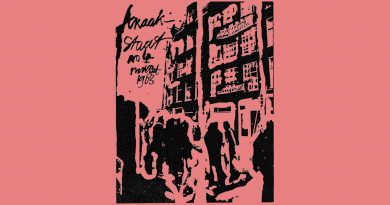How sex work became criminalised during COVID-19
This article is a summarised version of a podcast created as part of a research project investigating how the pandemic impacted sex workers in Amsterdam. The information was gained primarily through interviews with three sex workers in Amsterdam, who will remain anonymous, alongside some of the resources created during the pandemic by sex workers, such as Sekswerkexpertise timeline of events.
Text: Harriet Smith
Sex work is work , and in the Netherlands it is a legalised tax paying profession. I use the term legalised here, as sex work is not fully decriminalised but requires strict licensing which can often be hard to achieve for window agencies and brothels due to public stigma linking sex work with crime. As a legalised and tax-paying profession, one might think that during a pandemic in which all contact professions have been repeatedly banned from working for long periods, sex workers would have access to financial support. However, for a large proportion this has not been the case.
Sex workers are not one monolithic group; there are intersectional differences in privilege which have become more visible due to the pandemic. Those who are self-employed were eligible for emergency aid through the TOZO scheme, but a large proportion of sex workers in the Netherlands use the opt-in system. This is because they cannot legally be an employee, due to concerns over autonomy, but they may not wish to register as self-employed. The opt-in system places them somewhere between being a freelancer and being employed, allowing them to legally work in brothels, strip clubs, and rent windows through the agencies. Unlike self-employed workers, opt-in sex workers have received no financial support from the government since they were first told to stop working on the fifteenth of March 2020, disproportionately affecting migrant sex workers. This unsurprisingly pushed vulnerable people including migrant labourers into working illegally from home.
During the pandemic sex workers in the Netherlands faced police harassment through sex worker apps; they received messages to remove all online advertising and migrant sex workers received messages to return to their home country, despite the global pandemic. The messages from authority lacked any offer of support, and no other business was asked to remove all online advertising during the pandemic, whether actively working or not. Police raids during the pandemic broke up illegal brothels resulting in homelessness in some cases. Meanwhile robbery became more common, with several reports of gangs dressed as police officers who answered online advertisements and violently robbed sex workers. Thousands in fines were also handed out to sex workers for working illegally, seemingly ignorant of their reality and lack of financial opportunities. Homelessness became more common among sex workers, and there were also four reported suicides in the community.
One sex worker interviewed, who had been in the industry for over 25 years, stated that ‘this was the worst year they had ever experienced, and that this year had eroded the trust sex workers may have had in the government and municipality.’ However, sex workers are resilient and generally require great social skills which makes them extremely capable of organising. The Dutch Emergency Fund, a mutual aid fund created by Trans United and SOAAIDS, raised over 10,000 euros in less than a month. You can still donate to support those affected by the pandemic too!
Sex workers were continually left out of ‘return to work announcements’ for contact professions. Repeated protests, online organising and letter writing proved necessary to receive the same rights as other workers. Only in the press conference on the eleventh of May 2021, did Prime Minister Rutte directly address sex workers, stating that they can open again on the nineteenth of May. One of the sex workers interviewed mentioned how emotional this was, stating that so few governments recognise sex workers in public announcements; especially without a narrative of ‘saving’ them. Sex workers are seen as ‘stupid and dirty’ said one interviewee. Another interviewee was publicly dismissed as being too intelligent to be a sex worker at a council meeting. It was assumed she was paid to be there. Stigma continues to reduce the autonomy and options of those who choose to perform sexual labour for money, exercising their bodily autonomy in a capitalist world system.
On the second of June this year, International Sex Workers Day, a new initiative called #SWAD or ‘sex work alliance destigmatisation’ launched. In an attempt to remain hopeful, following a dark period for sex workers, I hope this new initiative and the public recognition of sex workers’ right to work by the Prime Minister, represent the start of cultural acknowledgement and material support that sex workers deserve, as well as a recognition of the nuance that exists within the industry. Sex workers deserve respect and safety, and for politicians who claim they agree, they must learn to listen to the workers themselves.




